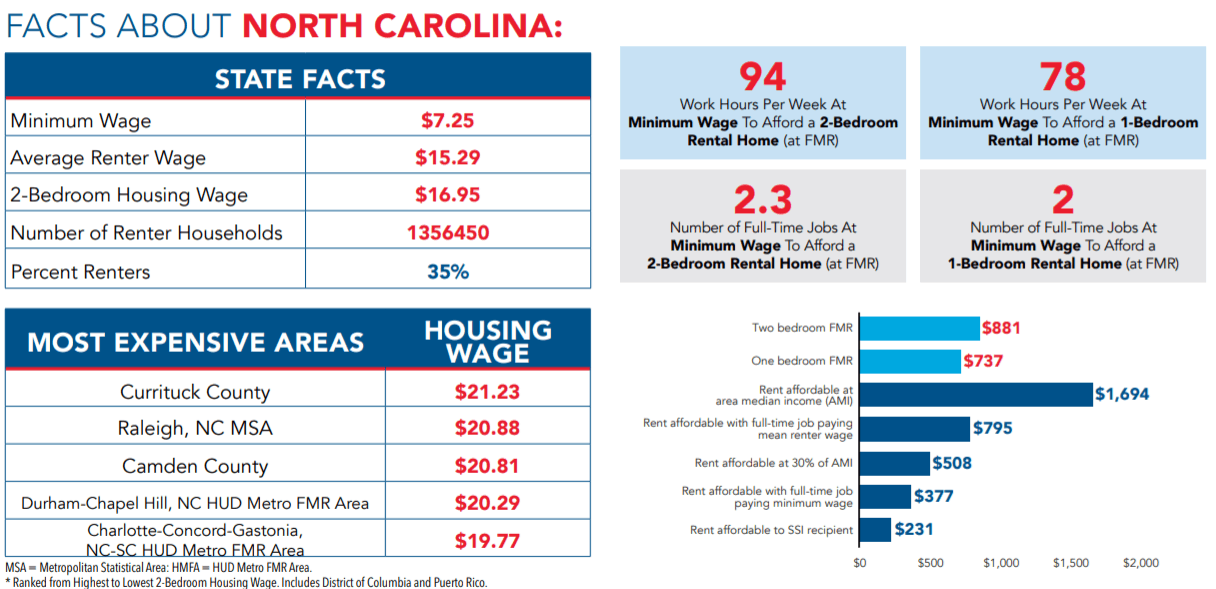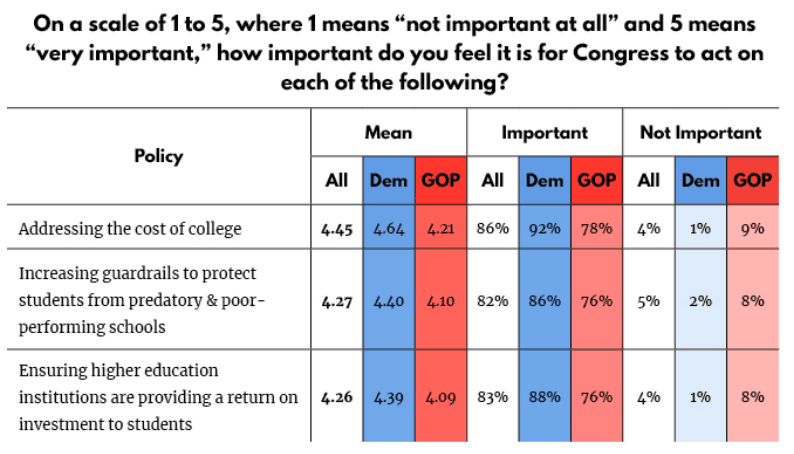Dropping Knowledge
North Carolina is ranked 30th out of 52 (50 states plus D.C. and Puerto Rico) for housing affordability in the National Low Income Housing Coalition’s 2019 “Out of Reach” report. That ranking is based on how much you need to make to afford a two bedroom rental, which the report refers to as the housing wage. In North Carolina, the housing wage is $16.95/hour. Here’s what that means for renters in North Carolina:

See a breakdown of housing costs by county in the full report, and then go to their interactive website to compare counties to the state average, among other things.
Contextual Healing
What do voters think about higher education? A new national survey from Third Way of 1,389 likely 2020 voters found widespread support for vocational and trade schools and public community colleges, overall support for public four-year institutions, and little support for proprietary or for-profit schools. The survey also found considerable agreement between likely Democratic and Republican voters on the importance of addressing the cost of college, protecting students from predatory schools, and holding higher education accountable for student outcomes.

Other policy proposals that both Democratic and Republican likely voters support include:
- Increase Pell Grants (D-90% support, R-73% support)
- Require college accreditors to consider student outcomes (D-85% support, R-82% support)
- Increase transparency by lifting federal ban on collecting student data (D-82% support, R-78% support)
- Allow students to earn a year of full tuition at any public institution per year of service (D-84% support, R-76% support)
For Your Consideration
A new working paper out of Brown University suggests teachers might be schools’ best hope in combatting chronic absenteeism in students. As a reminder, in North Carolina, chronic absenteeism is defined as a student missing more than 10% of enrolled school days in a given year. In the 2015-16 school year, 14.8% of North Carolina students were considered chronically absent according to the Office of Civil Rights. View chronic absenteeism rates by county here.
The researchers measured the impact of middle and high school teachers on student attendance and found that some teachers are much more effective than others at reducing unexcused absences and that those teachers had long-term positive impacts on student outcomes, including the likelihood of graduating from high school and taking Advanced Placement courses. Interestingly, teachers who were the most effective at reducing absences were not necessarily those most effective at increasing student achievement (test scores), and they had a greater positive impact on long-run outcomes than teachers who were most effective at raising student achievement.
What we're reading
North Carolina's lab school experiment
North Carolina's lab schools are meant to be partnerships between UNC system schools and local districts that will lead to innovations in student performance and teacher prep—but questions remain about funding, oversight... Read the rest-
The Fight to Recruit and Retain Paramedics
-
Finding Foster Families for Teens Is a Challenge in Many States
-
Time to cook is a luxury many families don’t have
-
How to Improve Physical Activity and Health for All Children and Families
-
A Breakthrough in the Mystery of Why Women Get So Many Autoimmune Diseases
-
Working Even Just a Few Hours a Week Boosts Mental and Emotional Health


